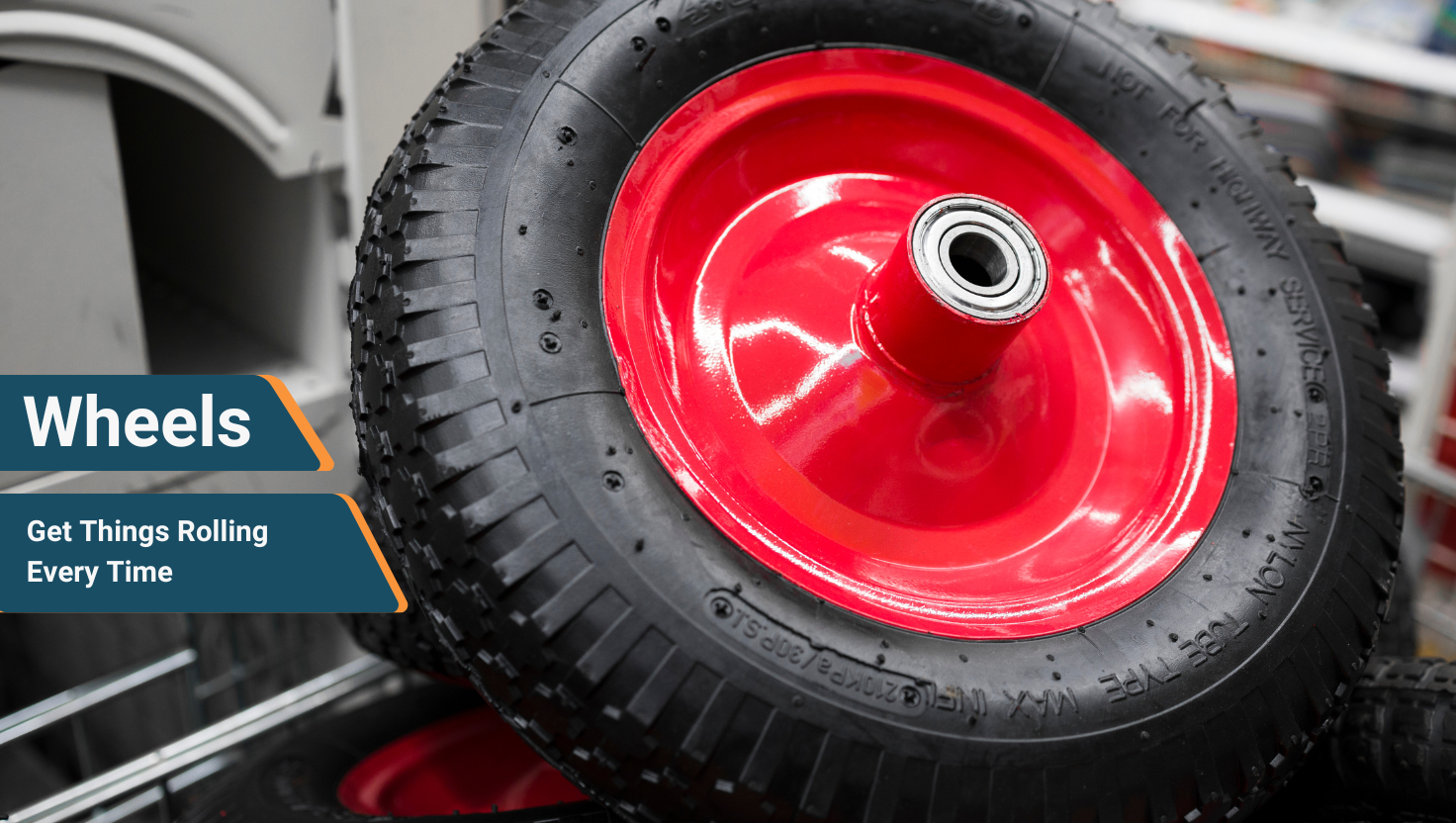SADC Certified Exporter
Nationwide & Cross-Border Delivery
Contact us for an Obligation Free Quote

Industrial wheels are designed for heavy-duty applications such as trolleys, carts, pallet jacks, and warehouse equipment. They support high load capacities, allow safe and efficient movement of goods, and improve productivity across industrial environments.
Heavy duty castor wheels are manufactured with reinforced materials like polyurethane, nylon, cast iron, or solid rubber. They are engineered to carry heavier loads, withstand constant use, and resist wear on rough surfaces, making them the preferred choice for warehouses, factories, and logistics facilities.
Polyurethane wheels are durable, non-marking, and capable of carrying higher loads. They also resist oils and chemicals, making them suitable for demanding industrial conditions. Rubber wheels provide a softer ride with better shock absorption and are quieter on uneven floors, but they usually carry lower load ratings. The right choice depends on whether you value load performance or surface protection.
The load capacity of an industrial wheel is determined by its material, its diameter, the type of bearing fitted, and how many wheels are carrying the load. Cast iron wheels can usually support the heaviest loads, while rubber and nylon handle lighter duties. Larger diameters improve stability and rolling ease, and bearings such as ball bearings allow for smoother movement under higher weights.
Wheel diameter affects how smoothly the wheel rolls over obstacles and how much weight it can carry. Bore size must match the axle or shaft for a secure fit. A wheel diameter and bore size guide helps you match these specifications to your equipment so that the wheel performs safely and efficiently in your environment.
Flanged wheels are designed to run on tracks or rails, keeping equipment aligned during movement. They are ideal for guided systems in warehouses or production lines where trolleys need to travel in straight lines with precision and without risk of drifting.
V-groove wheels run along inverted angle-iron tracks, allowing for smooth, controlled movement in guided applications. They are commonly used on sliding gates, transfer carts, and production lines where accurate alignment and heavy load handling are required.
Plain bore wheels are simple and cost-effective but suited to lighter loads. Roller bearings are suitable for moderate loads and provide smooth operation. Ball bearings offer the best performance for heavy-duty applications because they reduce friction and allow for easier rolling under high loads. The choice of bearing directly influences how the wheel performs under pressure.
Non-marking wheels, often made from grey rubber or polyurethane, are designed to prevent streaks and scuffs on delicate flooring surfaces such as tiles, epoxy coatings, or polished concrete. They also reduce noise levels during operation, which makes them a smart choice for hospitals, schools, and clean industrial spaces.
Cast iron industrial wheels can carry very high loads, offer exceptional durability, and perform reliably in harsh environments. Their strength makes them suitable for extreme-duty applications, although they can be noisy and may damage softer flooring if used in the wrong environment.
Nylon wheels are capable of carrying significant loads while being lighter in weight than cast iron alternatives. They resist moisture, oils, and chemicals, which makes them particularly useful in industries such as food processing and pharmaceuticals. However, they can generate more noise when rolling over rough floors.
Pallet jack wheels are designed specifically for pallet trucks. They include steering wheels and load rollers, usually made of nylon or polyurethane, that are engineered to handle heavy loads and frequent rolling in warehouse settings. They differ from standard wheels because they are tailored to the high-pressure points of pallet handling.
The right choice depends on the weight of the load, the type of surface the wheel will be rolling on, the environmental conditions such as exposure to chemicals or moisture, and how often the equipment is used. Considering these factors ensures that the wheel will perform efficiently and safely in the intended application.
Larger wheels often roll more smoothly and can handle heavier loads, but load capacity also depends on the material and the type of bearing. For example, a smaller polyurethane wheel may outperform a larger rubber wheel in terms of weight capacity and durability.
It is not advisable to mix wheel types on a single piece of equipment. Using different diameters, materials, or bearing types can create uneven load distribution, instability, and even floor damage. For best performance, all wheels should match in size, material, and specification.